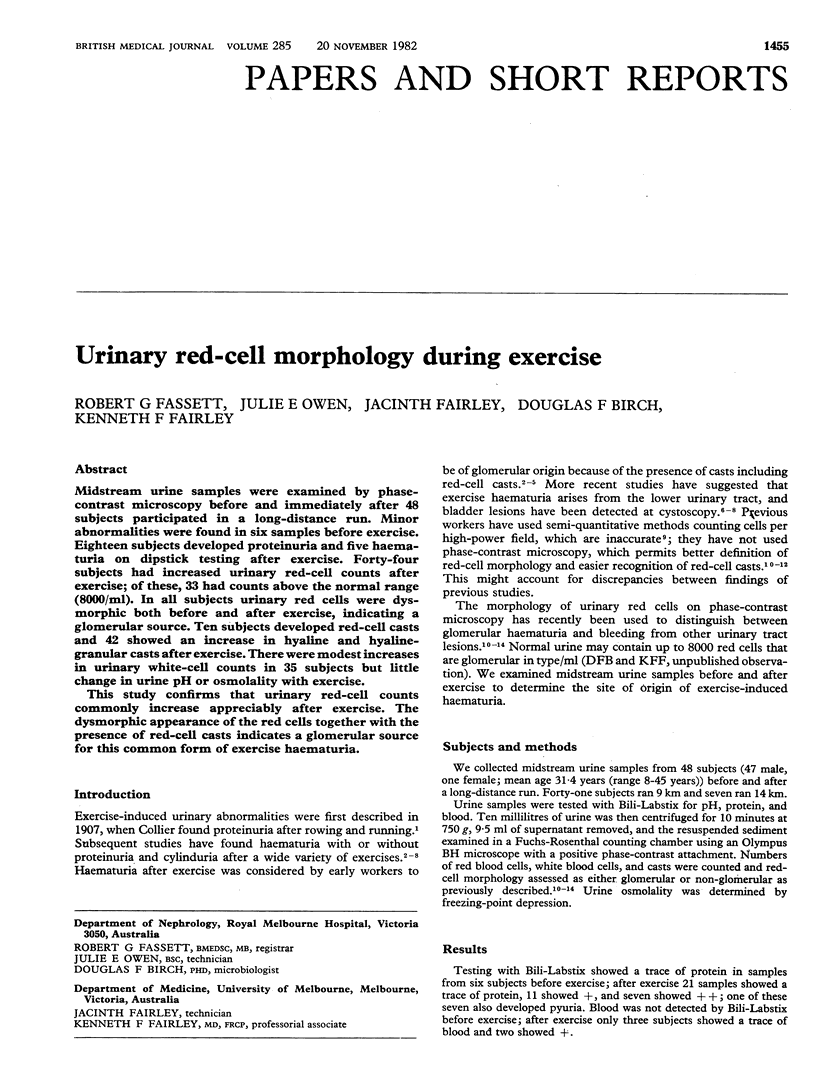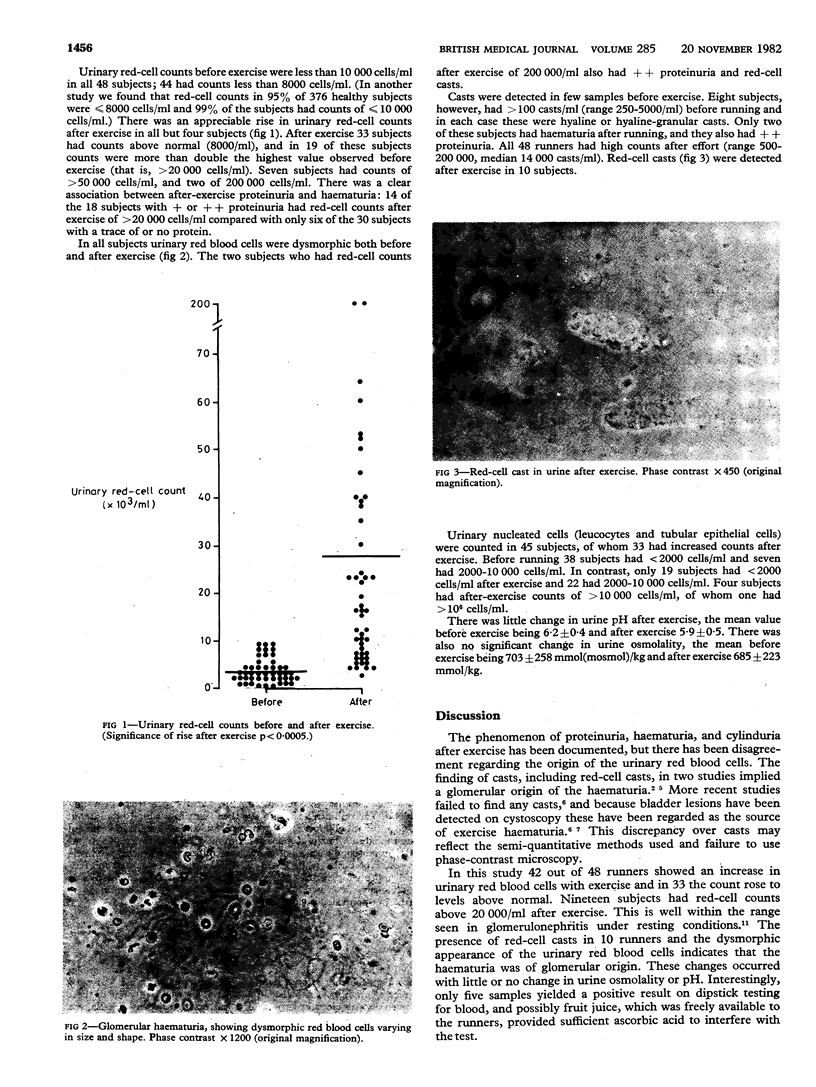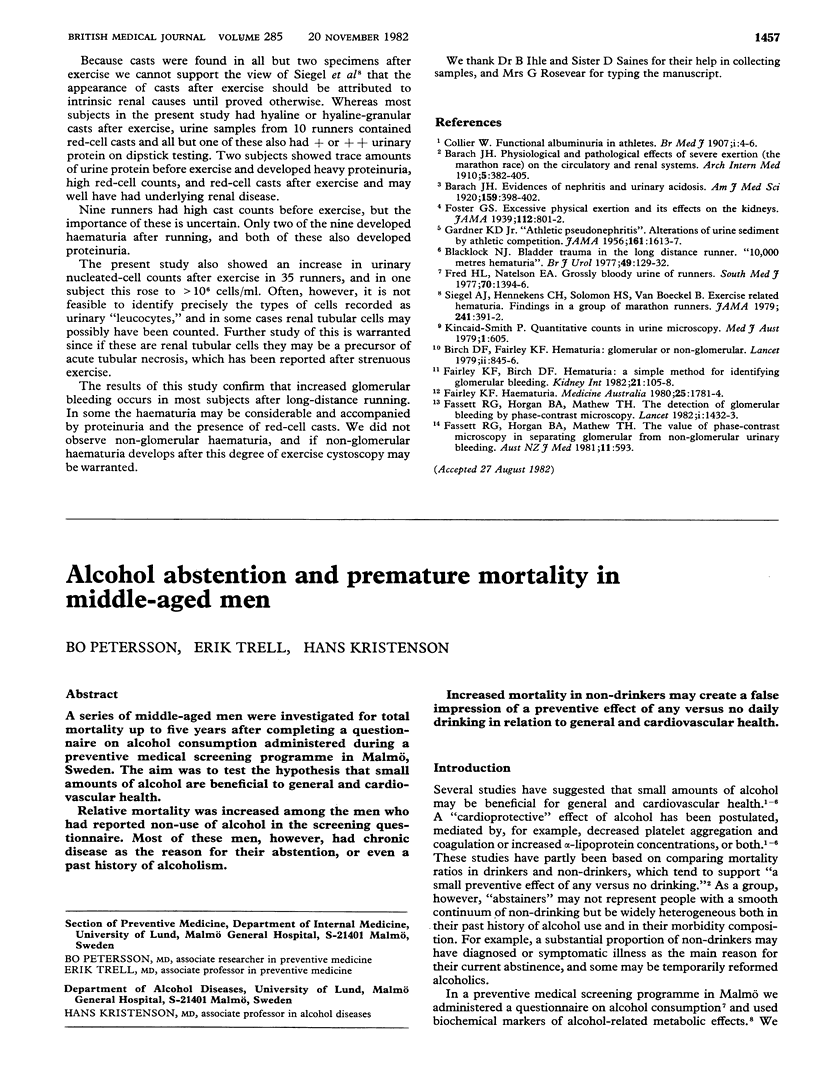Abstract
Midstream urine samples were examined by phase-contrast microscopy before and immediately after 48 subjects participated in a long-distance run. Minor abnormalities were found in six samples before exercise. Eighteen subjects developed proteinuria and five haematuria on dipstick testing after exercise. Forty-four subjects had increased urinary red-cell counts after exercise; of these, 33 had counts above the normal range (800/ml). In all subjects urinary red cells were dysmorphic both before and after exercise, indicating a glomerular source. Ten subjects developed red-cell casts and 42 showed an increase in hyaline and hyaline-granular casts after exercise. There were modest increases in urinary white-cell counts in 35 subjects but little change in urine pH or osmolality with exercise. This study confirms that urinary red-cell counts commonly increase appreciably after exercise. The dysmorphic appearance of the red cells together with the presence of red-cell casts indicates a glomerular source for this common form of exercise haematuria.
Full text
PDF


Images in this article
Selected References
These references are in PubMed. This may not be the complete list of references from this article.
- Birch D. F., Fairley K. F. Haematuria: glomerular or non-glomerular? Lancet. 1979 Oct 20;2(8147):845–846. doi: 10.1016/s0140-6736(79)92191-3. [DOI] [PMC free article] [PubMed] [Google Scholar]
- Blacklock N. J. Bladder trauma in the long-distance runner: "10,000 metres haematuria". Br J Urol. 1977 Apr;49(2):129–132. doi: 10.1111/j.1464-410x.1977.tb04084.x. [DOI] [PubMed] [Google Scholar]
- Fairley K. F., Birch D. F. Hematuria: a simple method for identifying glomerular bleeding. Kidney Int. 1982 Jan;21(1):105–108. doi: 10.1038/ki.1982.16. [DOI] [PubMed] [Google Scholar]
- Fassett R. G., Horgan B. A., Mathew T. H. Detection of glomerular bleeding by phase-contrast microscopy. Lancet. 1982 Jun 26;1(8287):1432–1434. doi: 10.1016/s0140-6736(82)92451-5. [DOI] [PubMed] [Google Scholar]
- Fred H. L., Natelson E. A. Grossly bloody urine of runners. South Med J. 1977 Dec;70(12):1394–1396. doi: 10.1097/00007611-197712000-00005. [DOI] [PubMed] [Google Scholar]
- GARDNER K. D., Jr Athletic pseudonephritis; alteration of urine sediment by athletic competition. J Am Med Assoc. 1956 Aug 25;161(17):1613–1617. doi: 10.1001/jama.1956.02970170009003. [DOI] [PubMed] [Google Scholar]
- Kincaid-Smith P. Quantitative counts in urine microscopy. Med J Aust. 1979 Jun 30;1(13):605–605. doi: 10.5694/j.1326-5377.1979.tb119397.x. [DOI] [PubMed] [Google Scholar]
- Siegel A. J., Hennekens C. H., Solomon H. S., Van Boeckel B. Exercise-related hematuria. Findings in a group of marathon runners. JAMA. 1979 Jan 26;241(4):391–392. doi: 10.1001/jama.241.4.391. [DOI] [PubMed] [Google Scholar]




